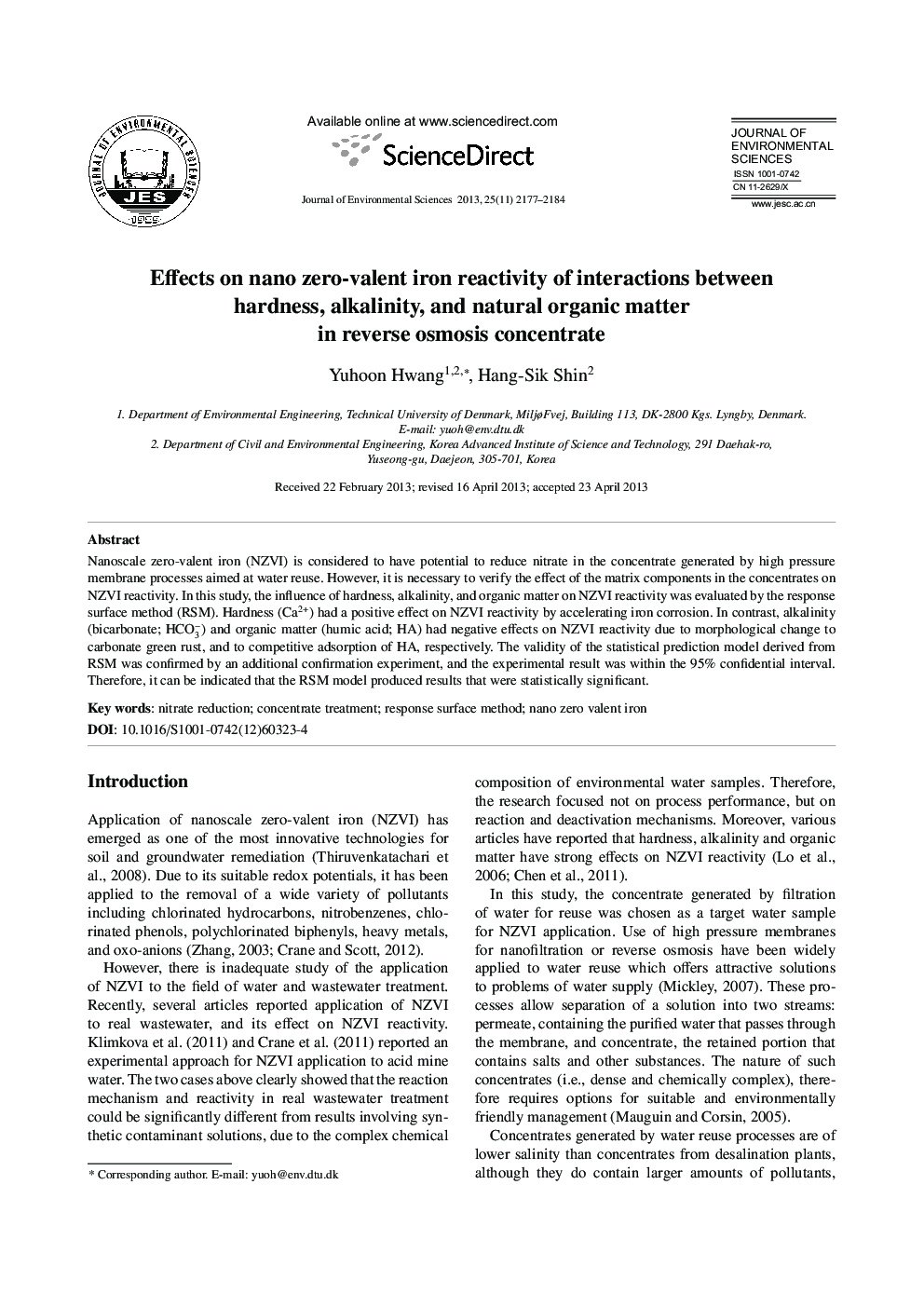| Article ID | Journal | Published Year | Pages | File Type |
|---|---|---|---|---|
| 4454462 | Journal of Environmental Sciences | 2013 | 8 Pages |
Nanoscale zero-valent iron (NZVI) is considered to have potential to reduce nitrate in the concentrate generated by high pressure membrane processes aimed at water reuse. However, it is necessary to verify the effect of the matrix components in the concentrates on NZVI reactivity. In this study, the influence of hardness, alkalinity, and organic matter on NZVI reactivity was evaluated by the response surface method (RSM). Hardness (Ca2+) had a positive effect on NZVI reactivity by accelerating iron corrosion. In contrast, alkalinity (bicarbonate; ) and organic matter (humic acid; HA) had negative effects on NZVI reactivity due to morphological change to carbonate green rust, and to competitive adsorption of HA, respectively. The validity of the statistical prediction model derived from RSM was confirmed by an additional confirmation experiment, and the experimental result was within the 95% confidential interval. Therefore, it can be indicated that the RSM model produced results that were statistically significant.
